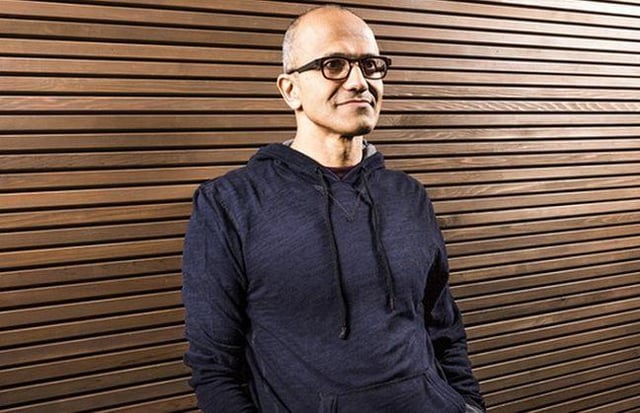AI Boom & Ballooning Paychecks: Did the AI Bubble Inflate Microsoft CEO’s Salary to $96.5 Million?
The rise of Artificial Intelligence has been nothing short of meteoric, transforming industries and capturing the imaginations (and investments) of people worldwide. But could this AI frenzy be having unintended consequences, specifically when it comes to executive compensation? A recent report suggests that Microsoft CEO Satya Nadella’s compensation package reached a staggering $96.5 million, fueling debate about whether the “AI bubble” is inflating executive paychecks to unsustainable levels.
Is this a sign of a healthy market rewarding innovation, or a symptom of unchecked exuberance in a rapidly evolving tech landscape? Let’s delve into the details and explore the implications.
Understanding Nadella’s Compensation Package
It’s important to understand what constitutes Nadella’s massive compensation. It’s not simply a lump sum paycheck. A significant portion is tied to stock awards, meaning his financial gains are directly linked to Microsoft’s performance. This structure is designed to align his interests with those of shareholders, incentivizing him to drive growth and increase the company’s value.
Beyond stock options, the package likely includes a base salary, bonuses tied to specific performance metrics (such as revenue growth or successful product launches), and other benefits. The specifics of these components are usually detailed in Microsoft’s annual proxy statements.
The Role of AI in Microsoft’s Performance
There’s no denying that Microsoft has been aggressively pursuing AI initiatives. Their partnership with OpenAI, the creators of ChatGPT, has positioned them as a leader in the AI space. They’ve integrated AI into their cloud computing platform, Azure, and their suite of productivity tools, such as Microsoft 365. This strategic focus on AI has undoubtedly contributed to Microsoft’s strong performance, especially in a competitive market. Microsoft’s stock price has reflected the investor enthusiasm for the company’s AI strategy.
The Argument for & Against Such High Compensation
Arguments in favor of such high compensation often center on the idea that leaders like Nadella are responsible for creating significant value for their companies. They point to his leadership in navigating Microsoft’s transition to a cloud-first, AI-driven company, resulting in substantial revenue growth and shareholder value. A highly skilled and effective CEO is viewed as a rare and valuable asset, justifying a premium price. It is a competitive talent market and companies like Microsoft want to attract the best.
However, critics argue that such exorbitant pay packages are disconnected from the reality faced by most employees, especially during times of economic uncertainty. They question whether any single individual can truly be worth such an enormous sum. Furthermore, some argue that tying compensation so heavily to stock performance can incentivize short-term thinking and potentially risky behavior.
The Ripple Effect: Are Other Tech CEOs Next?
Nadella’s compensation package could set a precedent for other tech CEOs, particularly those leading companies actively involved in AI development. If Microsoft’s board believes his contributions justify $96.5 million, other boards may feel pressure to similarly reward their CEOs for successful AI strategies. This could lead to an upward spiral in executive compensation across the tech industry. The board’s decision is also influenced by the overall market. They have to decide what compensation is appropriate.
Is It a Bubble? The Question of Sustainability
The term “AI bubble” is often used to describe the current hype surrounding AI technologies. The worry is that the market is overvaluing AI companies and projects, leading to unsustainable valuations and investments. If this bubble were to burst, it could have serious consequences for the entire tech industry, potentially impacting stock prices, funding opportunities, and ultimately, executive compensation.
While AI is undoubtedly a transformative technology, it’s crucial to maintain a sense of perspective. Not all AI projects will succeed, and the market’s current enthusiasm may not be sustainable in the long run. A healthy dose of skepticism and a focus on long-term value creation are essential to avoid the pitfalls of a bubble.
Ultimately, the question of whether Nadella’s compensation is justified is a complex one with no easy answers. It involves considerations of company performance, market dynamics, and ethical considerations. While the AI boom has undoubtedly contributed to Microsoft’s success, it’s important to remember that responsible leadership and sustainable value creation are the true measures of a CEO’s worth.
